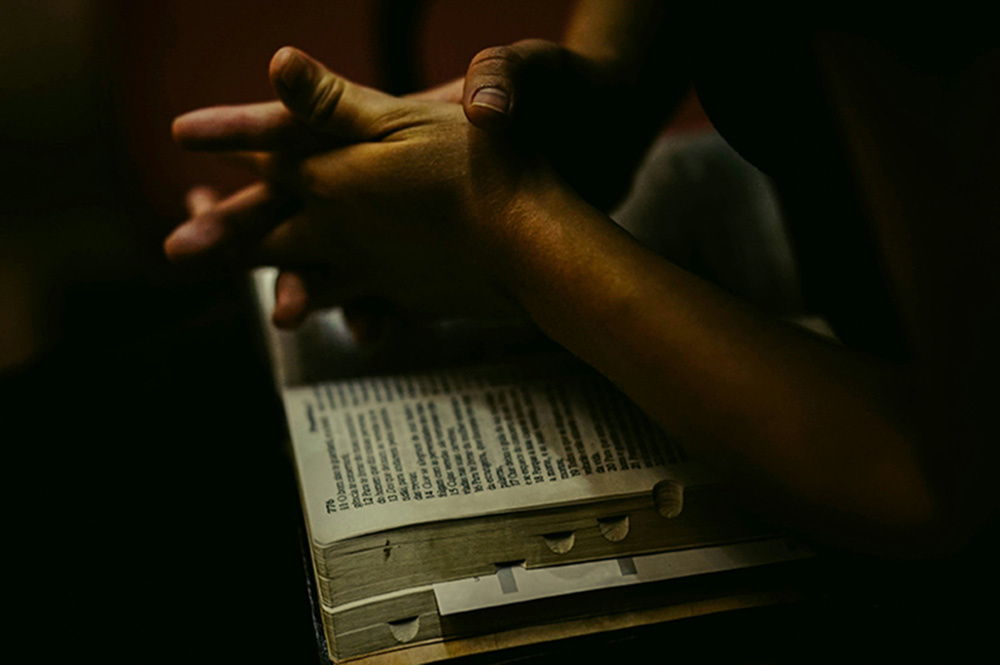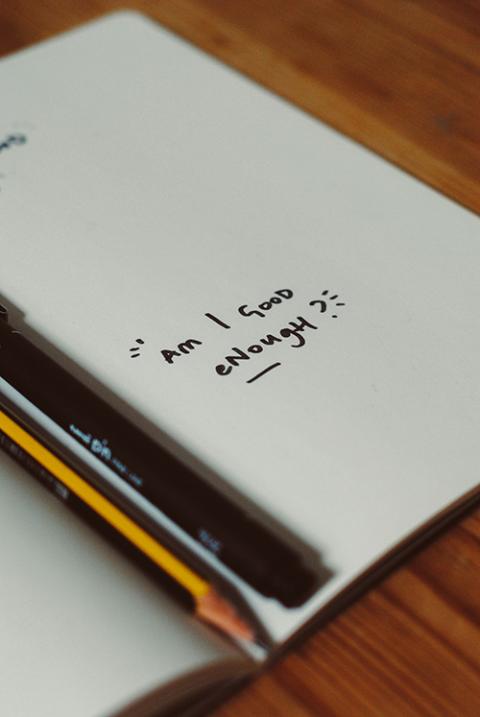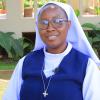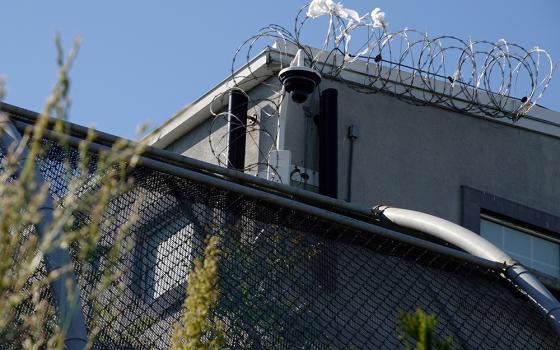
(Unsplash/Yohan Joy)
In anticipation of the upcoming Witness & Grace Conversations: A Health Care Forum on Mental Wellness, Global Sisters Report is publishing a selection of columns that explore how mental health challenges such as burnout, trauma, anxiety and depression quietly touch religious life and ministry. The forum, taking place on July 1, will provide the space for sisters to openly share resources and break the silence around mental wellness in community life. Registration closes on June 27.
There are moments in life when we are faced with pain so deep and struggles so intense, that we feel lost in our own world of suffering. I have walked this road, not only as a witness to others' pain but as someone who has endured loss, trauma and emotional wounds of my own.
In those moments of darkness, I discovered something profound: healing is possible, and no one should have to journey alone. This realization led me to dedicate my life to mental health counseling, a path that has allowed me to transform both my pain and my passion into a source of hope for others.
As a religious sister, one of the greatest gifts of my journey has been the ability to bridge the worlds of pastoral care and professional counseling. The journey has led me to my current role as coordinator of the Religious Sisters Counsellors Network, which is active in Malawi, Uganda and Zambia.
Advertisement
A foundation in pastoral care and family ministry
My early years in pastoral work taught me the importance of presence — the simple yet profound act of being there for someone in pain. Whether it was sitting with a grieving widow, a patient in hospital bed suffering pain, a lonely elderly person, a couple with marital struggles, or a young person searching for meaning, I learned that healing often begins in relationships. My role was not to solve or fix but to walk with people as they faced their own unique challenges.
While working in a hospital setting, I found that people not only suffered from physical pain that required medical attention but also carried emotional wounds that medical personnel could not heal. A sister who was a mental health counselor shared words that resonated deeply with me: "The majority of us need no medical attention but emotional healing; we suffer a lot that can't be cured by medicine." Her words have stayed with me for a long time.
When my superior general asked me to choose my professional career, my response to her was: "I wish to be a mental health counselor." Thanks to the All-Africa Conference Sister to Sister, which sponsored my academic journey from a diploma level to a master's degree in mental health counseling psychology, I was able to pursue the path I longed for.

(Unsplash/Nik)
Taking the step into professional counseling
The decision to seek formal training in mental health counseling was both exciting and daunting. While I had spent years in a helping role, stepping into the world of clinical practice required a new level of commitment and learning. I enrolled in university, eager to gain the skills that would allow me to integrate my pastoral experience, understanding of faith, family and emotional well-being into professional therapeutic practice.
My studies opened my eyes to the complex workings of the human mind and how our past shapes our present realities. What I found most fulfilling was the possibility to blend the compassion I had cultivated in pastoral work with the scientific foundation of psychotherapy. I learned to not just listen, but to provide tangible tools and interventions that empower my clients to heal.
Erasing the stigma of mental health care
Mental health challenges in sub-Saharan Africa have created an overwhelming, unmet need for counseling services. In 2023, a devastating cyclone in Malawi left thousands to grieve unimaginable losses of loved ones and homes. Yet the stigma of seeking mental health care is a deterrent for many who would most benefit.
Through the Religious Sisters Counsellors Network, we invest time and resources to help people understand the value of mental health care services. We provide outreach to religious congregations and have welcomed many sisters who, like me, carry unresolved trauma.
One sister came to the counseling hub in Kampala, Uganda, feeling overwhelmed by great fear and anxiety. Through her sessions with a sister counselor, she came to understand that she had experienced a traumatic experience in her youth and a similar incident recently which deeply affected her. Working through that trauma restored her mental health and she is now fully engaged in her role as a caretaker for elderly nuns in her congregation.
Rooted in faith, the counselor's network helps clients reconcile mental health challenges with their spiritual beliefs. We help people understand that seeking therapy is not a sign of weakness or a lack of faith but rather an act of courage and self-care. Mental health and spiritual well-being are not opposing forces; they can coexist in a way that leads to deep and lasting healing.
Mental health and spiritual well-being are not opposing forces; they can coexist in a way that leads to deep and lasting healing.
The Religious Sisters Counselling Network Initiative and its partners
The dream of a counseling network staffed by sister counselors became a reality in 2022, thanks to a generous grant from the Conrad N. Hilton Foundation initiative for Catholic Sisters. (This foundation is also a major supporter of Global Sisters Report.) The Hilton Foundation aims to "improve the lives of individuals living in poverty and experiencing disadvantage throughout the world."
The counseling initiative is one of the programs that are under the All-Africa Conference Sister to Sister, a network of sisters and lay persons that empowers women religious in Cameroon, Nigeria, Malawi, Uganda, Zambia and Zimbabwe. All-Africa Conference Sister to Sister works with sisters to develop programs that meet social and economic needs in the communities where they live, lead and serve.
In Uganda, All-Africa Conference Sister to Sister partnered with the Association of Religious in Uganda to create the flagship counselling centre in Kampala. To address the growing need for trained mental health professionals, All-Africa Conference Sister to Sister also partnered with Uganda Martyrs University to create degree and certificate programs in counseling. With support from generous grants from the GHR Foundation, more than 165 sisters have earned degrees in counseling, including 17 who have earned master's degrees.
A continued path to healing
When trauma, loss and emotional pain left me feeling hopeless, it was a sister counselor who helped me recover and find hope again. Today, as a licensed mental health counselor, I look back with gratitude on the path that brought me here. My personal and professional experience enable me to walk alongside those in pain, offering guidance, support and the hope that healing is possible.
With more than 65 trained sister counselors, the Religious Sisters Counselling Network offers a safe judgment-free space. At the main center in Kampala, and satellite locations in Uganda, Malawi and Zambia, clients find an environment that nurtures the journey from brokenness to renewal. Our message is simple: You are not alone. There is hope, and you deserve healing.





